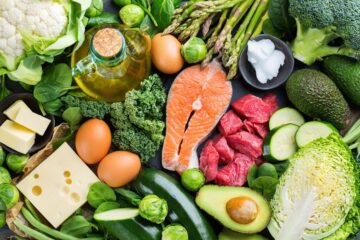Acne is a common skin condition that affect mostly adolescents. Unfortunately, there are many myths, misconceptions and beliefs with regards to acne. Bonus spoke to local dietitian Moloko Mehlape to set the record straight for young boys and girls transitioning into adolescence.
You might also want to read: What is the best diet
“Just like any other body tissue, the skin needs to be fed with vital nutrients to keep it healthy. When it comes to your skincare, what you put inside your body is just as important as what you put on it. The food choices we make daily have a huge impact on the firmness, clarity and health of one’s skin. Therefore the best skin regime starts with diet,” she explained.
High glycaemic index foods, mostly refined white starches such as cakes, biscuits can elevate the circulation of the release of hormones resulting in the release of androgen which may cause acne.
Moloko gave BONUS readers a few food myths and misconceptions around food:

1. Milk and other dairy products cause acne, this is not true according to her.
There is some research that suggests only the consumption of skimmed milk and not whole milk is associated with acne.
2. Detox more often to prevent acne.
“Detoxification of toxins in the body is perfectly handled by your liver and kidneys, therefore detoxification drinks are not necessary. We can only support the liver and kidneys with an abundance of antioxidant rich foods and vegetables to be more efficient. If you have a well-functioning liver and kidneys, drink enough water and avoid junk food so you don’t need any detoxification programme. Whole foods are the best option for a healthy skin,” she added.
3. Cleanse your colon to ensure clear skin.
This is a misconception. In fact, health and nutrition experts say that tampering with the natural colon cleansing may lead to more health problems including dehydration, electrolyte imbalance and infections. High fibre intake is therefore vital.
4. Fat in ones diet can cause acne.
“Dietary fat is important in the development of the brain, energy source. It helps in maintaining body temperature, insulates your organs, and supports cell growth, including that of the skin tissue. Consume more unsaturated fat found in nuts, olives, avocado, vegetable oils and oily fish such as salmon, sardines and mackerel,” explained Moloko.
To help boost healthy skin consume fatty acids and antioxidants, drink lots of water and exercise regularly.
“In conclusion, eating lots of fruits and vegetables with whole grain, seeds and nuts is good when it comes to your skin,” said Moloko.


